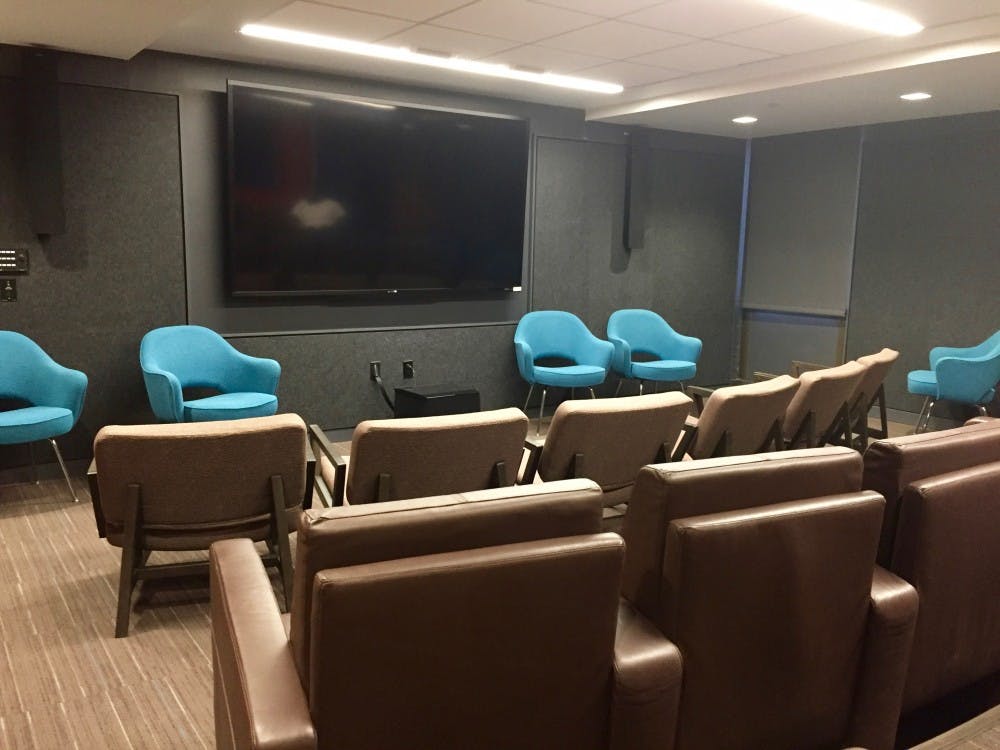Cinemark isn’t the only movie theatre on Penn’s campus, and the residents of Gregory know that better than anyone else. Film enthusiasts of all sorts—ranging from cinema studies majors to engineers—gather nightly at Gregory College House to appreciate good films and brew reflective discussions afterwards.
Penn’s Film Culture Program, created in 2003, is rooted in the Gregory House’s theatre, where around 150 movies are screened per year, ranging from Star Wars to La Grande Illusion. Prior to the founding of the program, there was a growing student interest in a film program. Dr. Christopher Donovan, a cinema studies professor at Penn and the resident House Dean of Gregory, believed the Gregory House seemed like a fertile ground to begin the program. Since then, the program has become a part of the culture of the house; some freshmen apply to Gregory specifically for its film program, but it's open to anyone who lives in the house.
In its early days, the program was very top–down, with the House Dean and faculty selecting all of the films. Since then, the program has evolved to be more student–driven, which suits the collective nature of Gregory as a College House. It's now heavily run by students returning to the program, with 3–4 film–savvy managers who have stayed in the program since freshman year selecting films and leading discussions.
Through the program, students are introduced to a wide range of films, which cover the history of film and the scope of world cinema today. Screenings are held in Gregory’s in–house theatre, a beautiful room with great multi–tiered seating. Due to low ceilings, renovators struggled to place a projector in the room, so they use a massive television screen instead. After the film screenings, discussions are held afterwards which give participants opportunity to analyze and appraise the film. Dr. Donovan says these conversations differ from his cinema studies seminars due to their informality—students don’t receive a lecture or need to know cinema terminology to engage in discussion. The Film Culture Program also offers excursions to Philadelphia film venues and incorporates relevant campus and Philly events, including the Penn Student Film Festival and the live Oscar Nominated Short Films screening at the Ritz.
The program is unique from other college house programs because it has an optional academic credit component (CIMS 180 301). Numbers of students participating in the program for academic credit range from 20–50 students. Dr. Donovan explains, “the academic credit component gives the program its backbone...with an academic focus, you know there will be a certain core group of students that will be plugged into the program each year.”
Amanda Reid (C ’18) applied to Gregory specifically because she wanted to participate in the Film Program. She was looking for a community she could “feel comfortable with, bond with, and learn from.” In some ways, the community she was looking for struggled to form due to different levels of interests among participants and individuals attending different screenings. She reflects: “There were definitely moments where I felt I had a space for myself to really experience a film more profoundly than I normally would have. Discussions were great because they expanded my reading of the film and sometimes even validated me in my views.”
Donovan says there are a lot of students interested in movies who choose to study other disciplines. The flexible credit option gives them a chance to explore this academic area of interests they just can’t fit into their formal academic scheduling. To receive credit for the program, a student must attend 10 in–House screenings and 3 off–campus excursions and complete a final project of their choice. Regarding these requirements, Donovan remarked, “the idea of the program is that students have this enormous amount of flexibility, so they have a quota of movies that they have to see if they enroll but they have so many to choose from.” Therefore, each person in the program has a very unique experience depending on which screenings they attend. As Donovan adds, there are students who go way beyond the quota and may even attend 60 screenings. His hope is that “students discover they like thinking about film in a way different than they are accustomed to.”
Check out the screening schedule here if you’d like to see what the Film Culture Program is like or if you want to watch a profound film. You can also learn more about the Film Culture Program on their Facebook page.

